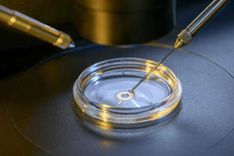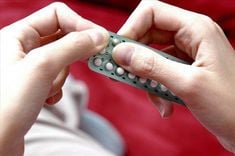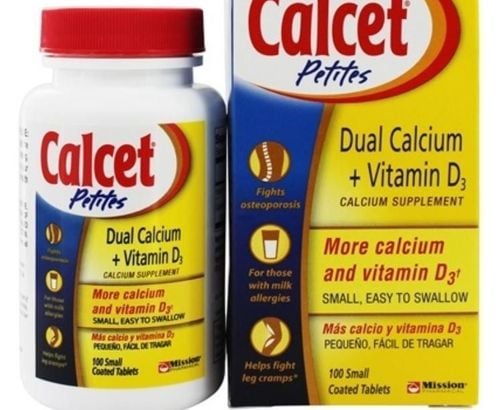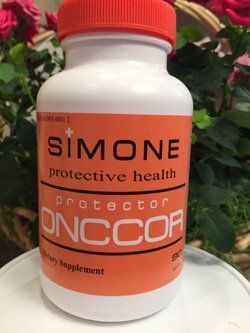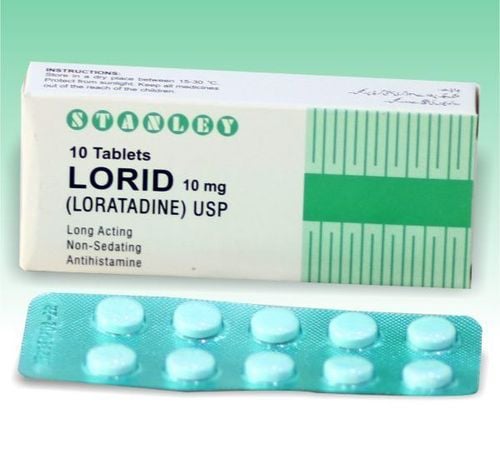This is an automatically translated article.
Diseases caused by viruses are a big concern of pregnant women. Many over-the-counter medications contain vitamin c, which can support a weakened immune system during pregnancy and reverse flu symptoms. However, the issue of "can you take vitamin c during pregnancy" always confuses many pregnant women, because some supplements and drugs used during pregnancy have hidden risks of affecting the baby in the womb.
1. What's in the C effervescent tablet?
There are several different types of quick supplements, often marketed as C effervescent tablets with the label “high potency vitamin C”.
This is mostly a fancy term for “sufficient vitamin C for the body.” Some vitamin manufacturers claim their products are easier to absorb than any other, less disruptive. digestive disorders and is more likely to be absorbed into the bloodstream along with many other vitamins.
Accordingly, the ingredients in 1 effervescent C tablet, in addition to high content of vitamin C, usually include:
Zinc B vitamins Other electrolytes, such as calcium and sodium Energy vitamins Probiotics Some similar products to C effervescent tablets, may contain lower levels of vitamin C, also contain vitamins D and E, melatonin , ginseng and caffeine.

Một số phụ nữ mang thai có thắc mắc "có bầu uống C sủi được không?"
2. Can pregnant women drink C effervescent?
It is difficult to eat oranges all day, day by day in an effort to chase away colds and flu or to improve resistance. Instead, there's a lot of appeal and convenience in simply dissolving an effervescent tablet in a glass of water and drinking up your immune-boosting vitamin C in minutes.
However, "can you drink C effervescent" is a concern and should be discussed with a doctor first. Most doctors advise pregnant women to avoid haphazardly taking supplements for a healthy pregnancy.
The World Health Organization (WHO) reports that several studies have investigated the impact of vitamin C on pregnancy and delivery outcomes. Vitamin C improves in some cases, but does not improve outcomes in others. Therefore, WHO does not recommend widespread vitamin C supplementation during pregnancy. That's not to say that taking vitamin C during pregnancy can harm a woman, but it does mean that there aren't enough data comparing the benefits received to outweigh the possible risks. Plus, the effects of this vitamin C on immune health specifically during pregnancy have not been closely studied.
On the contrary, these restrictions will become easier for nursing mothers. Accordingly, these subjects were able to take a high daily dose of 1,000 milligrams of vitamin c - the same as the ingredient in 1 effervescent tablet - without any adverse effects for the mother herself or the infant.

"Bầu uống c sủi được không?" là thắc mắc của rất nhiều mẹ bầu hiện nay
3. Vitamin C Recommendations During Pregnancy
The amount of vitamin C in supplements such as effervescent tablets varies but peaks at 1,000 milligrams per serving.
Meanwhile, as recommended by nutritionists, pregnant women over the age of 19 should get 85 mg of vitamin C per day, while women over 19 who are breastfeeding should get 120 mg per day. These numbers are slightly lower - 80 and 155 respectively - if the woman is under 19.
As for whether or not to take effervescent vitamin C and how much vitamin C to take without side effects, manufacturers recommend consuming no more than 2,000 milligrams of vitamin C per day. This is also the daily limit for pregnant and lactating women over the age of 19. This is because short-term use of more than 2,000 milligrams of vitamin c per day is unlikely to cause any problems other than mild digestive upset, but some studies have shown that consuming large amounts of the vitamin C for a long time can cause kidney stones or excess iron absorption, especially in pregnant women.
However, the source of vitamin c provided to the body is not only from effervescent tablets. Instead, people can also get more vitamin C from raw foods. This is a safer but effective way to increase the amount of vitamin c absorbed effectively into the body. So try eating more citrus fruits, red and green peppers, broccoli, cherries, spinach and strawberries – all of which are safe sources of vitamin c for pregnant and nursing women. . In the case of morning sickness during pregnancy, limited food intake and a need to use vitamin C from supplements, consult your doctor about the issue of "can you drink c effervescent 3 months of pregnancy?" " before start.
In summary, vitamin C supplements such as effervescent tablets may be appropriate for regular use, but there is not much evidence to support the safety or usefulness of these products when fighting period sickness. pregnant. So, instead of just wondering about "can you drink c effervescent drink", stay healthy during these 9 months by eating a diet rich in vitamins and minerals, practicing good hand hygiene to improve your health. resistance and prevention of colds and flu. If you still feel you need an extra boost of vitamin C, talk to your doctor before taking it.
Please dial HOTLINE for more information or register for an appointment HERE. Download MyVinmec app to make appointments faster and to manage your bookings easily.


